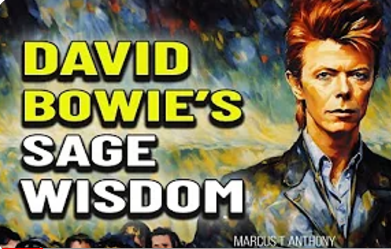What if you are living someone else’s life, someone else’s story? Someone else’s WAR. Only you just didn’t realise it? And what has all this got to do with the connection between singer Elvis Costello and English Civil war figure, Oliver Cromwell? I answer these questions in my latest video on YouTube.
The video is based on a thee found in my latest book Power and Presence: Reclaiming Your Authentic Self in a Digitized World.
VIDEO TRANSCRIPT
What if you are living someone else’s life, someone else’s story? Someone else’s WAR. Only you just didn’t realise it? And what has all this got to do with the connection between singer Elvis Costello and English Civil war figure, Oliver Cromwell?
Hello, my name is Marcus T Anthony, and I am a futurist hellbent on exploring the futures of the mind in relationship with technology and society. Please don’t forget to like and subscribe to this channel!
Now back to Oliver and Elvis. Oliver’s Army is a well-known early 80s, song, sung by Elvis Costello. It’s got a wonderfully catchy melody, one that seems strangely antithetical to the song’s lyrics… “and I would rather be anywhere else than here today.”
About forty years after first hearing that song, in my distant youth, I decided to look into its meaning, after it came to me in a dream. Strangely, I’d never heard anyone discuss the topic. As it turns out, the song references the mercenary army of Oliver Cromwell, recruited during the English Civil Wars of the mid-17th century. Cromwell wielded power by enlisting men from all walks of life, from the ranks of both the rural and urban locales, from both the poor and the middle classes. Cromwell paid them a wage, and they went to do battle for him. So, Oliver‘s Army, the song, is really Elvis Costello’s criticism of the exploitation of people who are enlisted to fight in violent struggles for power – other people’s power. Notably, the genuine comprehension of those power structures are often far beyond the awareness or understanding of those doing the killing – and being killed.
Yet perhaps it is that the soldiers of Cromwell’s army were really not that much different from many of us today. Are you fighting battles that are not your own? Are you – or your people – playing a rigid role in a story that was written by somebody else? Have you given your power away to bad faith actors, or to their systems? This is an increasingly important topic in the age of the Internet.
Today I was reminded of that Elvis Costello song while listening to an incredibly inspiring and poignant TED talk given by the actor Ethan Hawke (which I link to, in the description). Ethan Hawke’s powerful message is about creativity, but it seems to me there is an important overlap with the idea of power, and how we often unintentionally give it away. Creativity and art grant us an opportunity to express a kind of divine spark within us, to enact roles and stories from both ourselves and our communities, that are transformative, and that are a deep reflection of our authentic selves. The creative act gives us a chance to explore those parts of ourselves that we may not normally be in touch with, or even know exist. In his TED talk, Ethan Hawke speaks about how children typically know how to express creativity, and they often create without any sense of shame or self-consciousness. This is why they are typically more creative than adults. When we worry too much about being perfect, or being rejected or ridiculed, then we may abandon the creative spark within us.
And perhaps most importantly, creativity and art unite us in our common humanity. They allow us to connect deeply with each other, something which is all too often missing in the age of machines.
The great promise of the Internet is that it permits our creativity to find ready and easy expression, and this will become even more so as the AI explosion gains in pace. Yet the great tragedy of the Internet is that this creative spark can so easily be distorted and misdirected, and become something not transformative, but destructive and misaligned with our Authentic Selves. Far too many of us have learned to invest our creative energies in anger and projection, fighting battles that do not serve us. And when we do this, we miss the boat. We miss who we are. And we miss the opportunity to engage with others deeply. And perhaps worst of all, the promise of the Internet, and of art, is lost.
But, we cannot blame BigTech entirely for this outcome. We should not simply point the finger at Elon Musk or Zuck, or at the Democrats or Republicans, at left or right. Nor should we finger the FBI or the CCP. For it is we who have given our power away to them and their narratives. We have a choice, and the awareness of that moment of agency is a cornerstone of what I call digital wisdom. As I write in my book Power and Presence: Reclaiming Your Authentic Self in a Digitized World, the definition of empowerment is the ability to place your attention where you want to, when you want to. For if you do not have that ability, what power do you really have?
If you can’t willingly bring your mind to presence on what which serves your greatest good, you are a cog in the machine. Someone else’s machine. Think about that future!






